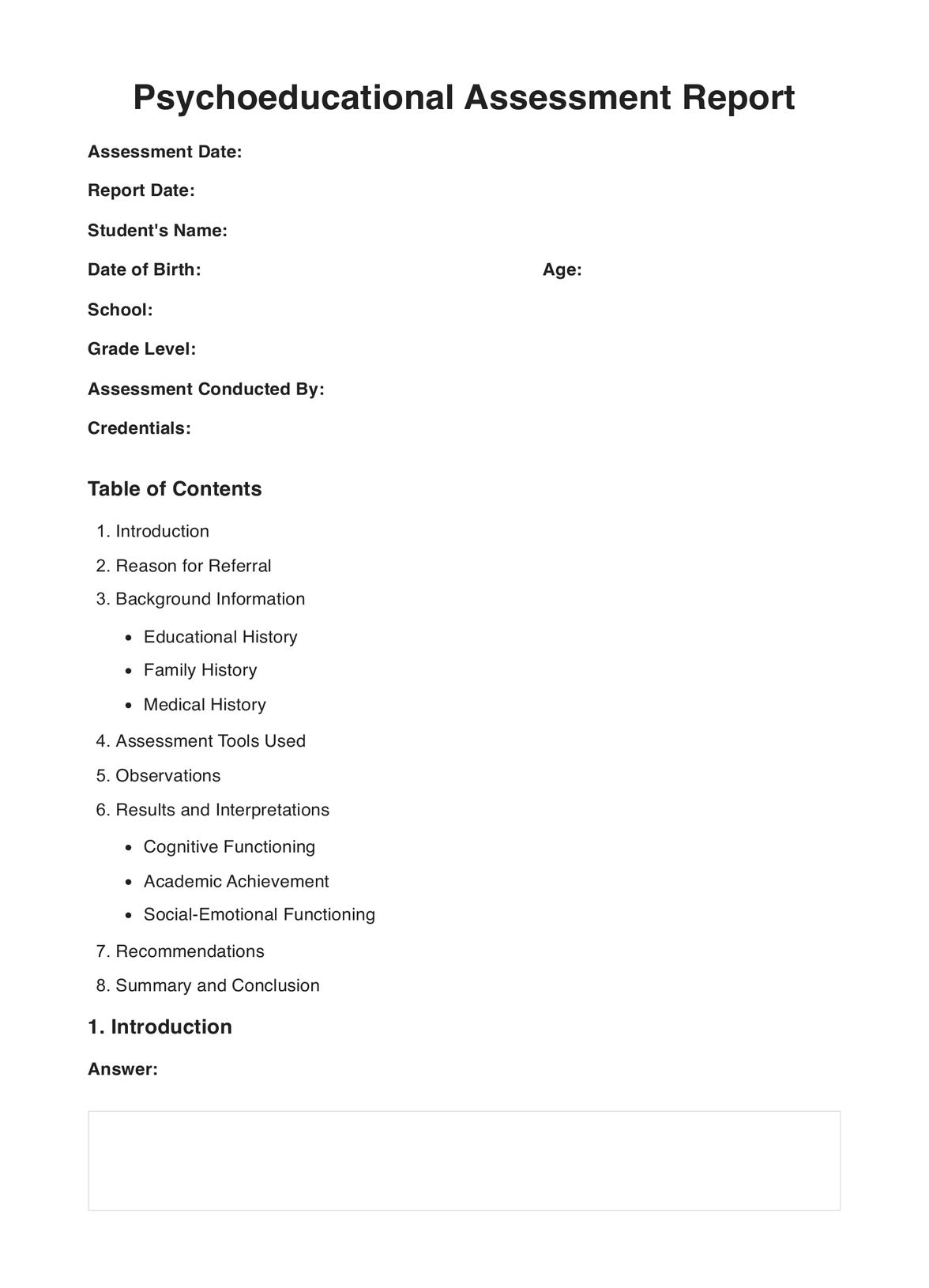Psychoeducational assessments are typically used by psychologists, educators, and other professionals involved in educational planning and intervention.

Psychoeducational Assessments
Discover the power of Psychoeducational Assessments. Uncover cognitive, academic, and socio-emotional insights to empower learning strategies.
Psychoeducational Assessments Template
Commonly asked questions
These assessments are usually used when a child or adult is experiencing difficulties in school or work that may be related to a learning disability or other cognitive, emotional, or behavioral issues.
Psychoeducational assessments involve a series of standardized tests, interviews, and observations. The results are analyzed and compiled into a comprehensive report, which can guide the development of educational accommodations or intervention strategies.
EHR and practice management software
Get started for free
*No credit card required
Free
$0/usd
Unlimited clients
Telehealth
1GB of storage
Client portal text
Automated billing and online payments











